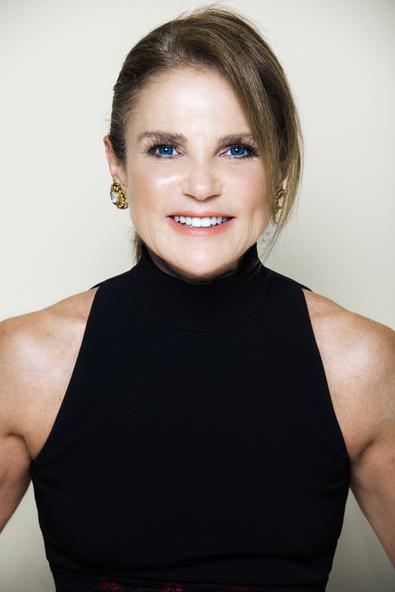Your new memoir, Lilyville, explores the evolution of your relationship with your mother, Lily, interwoven with the evolution of your acting career. It was not always an easy relationship, was it?
No. My mother was born on a table in the Bronx in 1911 and believed that you shouldn’t praise your children too much, lest they grow too proud and evil should strike them down. This wasn’t just a Jewish tradition, it was a peasant tradition, I think from her family’s roots in Eastern Europe. Training your child, correcting your child, fixing, preserving and protecting your child was the priority—and it was a priority I absolutely did not understand or appreciate, in the sense that I could not equate that with love. By contrast, my father had unbridled,  unconditional love for his children. My mother and I struggled. It was tough. When I turned 18, I asked her if she loved me—it was right out of Fiddler On the Roof—and she said, “Who sat in the station wagon while you were at your piano lessons? Who took you to Hebrew school? Who takes you to the voice lessons you insist on having? Who carts you all over the place to fulfill your desires? That’s me.”
unconditional love for his children. My mother and I struggled. It was tough. When I turned 18, I asked her if she loved me—it was right out of Fiddler On the Roof—and she said, “Who sat in the station wagon while you were at your piano lessons? Who took you to Hebrew school? Who takes you to the voice lessons you insist on having? Who carts you all over the place to fulfill your desires? That’s me.”
Did she approve of your career choice?
I did not have her approval. There was no support. She was very transparent in not wanting me to go into theater. My older brother David had gone into theater so that was one child “down the tubes,” and now her second child…what did I do to have these two kids in the arts? Well, in my case, I had to construct this whole fantasy life just to feel good!
Did that change with your success on Broadway and all your awards?
No. The first confluence of our values was the day I married. She said, “You can do anything you want now…you married a Harvard lawyer!” She had married a Harvard lawyer, so she could finally breathe a sigh of relief. However, as our lives progressed, and I became a mother, my mother and I had more and more in common. She lived long enough for us to solve all of our problems.
What changed?
Part of the reason was that I wanted to. I didn’t sit there waiting for fate to come my way. When I turned 40, she asked, “How much longer are you going to blame me?” I said, “Not another minute.” Our journey was so enormous that, rather than writing a memoir about my life, I thought it would be more interesting to relate it to this woman who lived 103 years, to give my readers, my audience, a rich overview of having a mother who was born before women’s suffrage and who lived through the Spanish Flu, Roaring Twenties, the Great Depression—during which she put herself through NYU—and World War II, when her husband was drafted at 32. I loved my mother. She was hilarious. On her tombstone it says Mother Grandmother Matriarch Comedian.
Editor’s Note: This interview was conducted while Tovah was on a six-mile bike ride around Central Park. For another five minutes (and then some) on Lilyville and the mothers and daughters she’s played, visit edgemagonline.com. Lilyville is published by Hachette Books.





